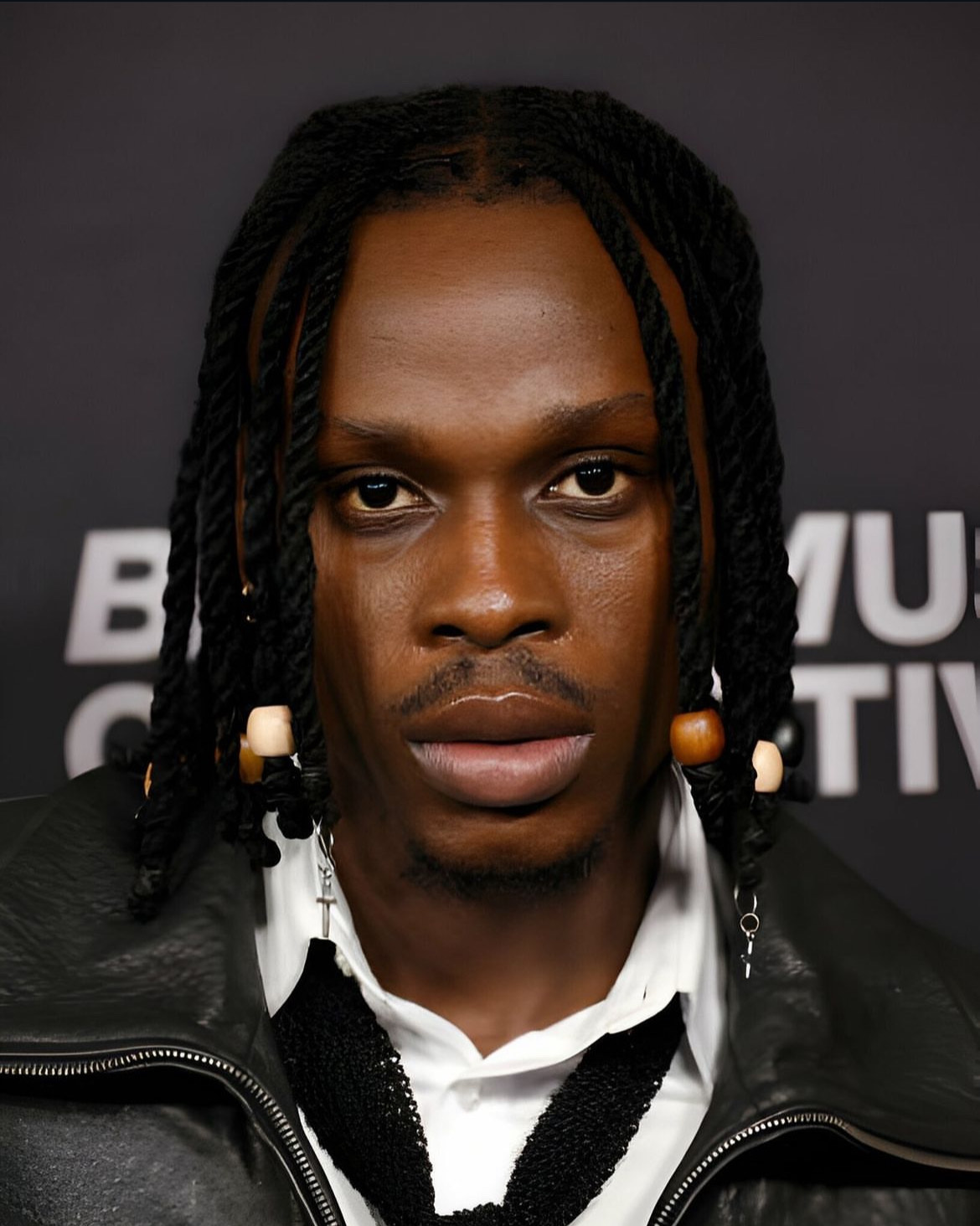Adedamola: Beyond Album, A Return of Maestro Loverboy Identity, and Sensation in Nigerian Music

Just when fans were starting to wonder if the loverboy Fireboy was gone for good, he shocked them with the release of his latest album, Adedamola.
n the complex, yet fascinating world of Afrobeats, where rhythms are as diverse as the people who create them, Fireboy DML stands as a singular force—a maestro of melody, a poet of passion, and a chameleon of style. Born Adedamola Adefolahan, Fireboy’s journey from the illustrious streets of Abeokuta to the global stage is nothing short of a modern-day odyssey. With each release, he continues to redefine what it means to be an artist in the Nigerian music scene, oscillating between the tender loverboy and the confident, assertive performer, all while maintaining a lyrical depth that breathes life into every beat he touches. Fireboy’s entry into the limelight was as enchanting as it was powerful. Signed to YBNL Nation, the record label founded by Nigerian rapper Olamide through sheer grace, Fireboy made his mark with his debut album, Laughter, Tears, and Goosebumps, in 2019. The album was an immediate success, a breath of fresh air in an industry saturated with party anthems and club bangers. Fireboy’s music was different—it was intimate, introspective, and deeply emotional.
Tracks like “Jealous,” “What If I Say,” and “King” introduced the world to Fireboy’s loverboy persona—a man unafraid to wear his heart on his sleeve, to delve into the complexities of love and desire with a tenderness that was both refreshing and relatable. His melodic compositions were nothing short of virtuosic, weaving together elements of Afropop, R&B, and soul into a seamless tapestry of sound. His lyrics, filled with poetic metaphors and vivid imagery, resonated with listeners on a profound level, making Fireboy not just a singer but a griot.
Like Beethoven, in his powerful words, “What you are, you are by accident of birth; what I am, I am by myself.” There are and will be a thousand princes; there is only one Beethoven.” What distinguishes Fireboy from his colleagues is his unrivaled ability to convey emotion through his songs. His lyricism is immersive, distinguished by depth, sincerity, and relatability. Fireboy’s lyrics, whether about the exhilaration of love, the anguish of heartbreak, or the complexity of relationships, resonate with audiences. His silky and soulful voice delivers each note with precision, making each song feel like a personal experience shared by the artist and the audience; this distinguishing feature mirrors his years as a poetry enthusiast. His musical sense is similarly excellent.
Fireboy has a rare ability to create melodies that are both catchy and intricate, allowing them to stick with you long after the song is over. His compositions bring life to every beat, transforming simple rhythms into complex, multi-layered soundscapes. Fireboy’s lyrical and melodic talent has won him a place among the premier voices in current Nigerian music. During a recent Album Talk interview, Fireboy revealed that the foundation of his sound as an artist is fiercely built upon the monumental catalogs of legendary artists such as Nigerian singer and melody grandmaster Wande Coal, multi-talented American singer and songwriter Jon Bellion, and the highly talented English Indie Folk singer and songwriter Passenger. With this trio as role models, his musical agility is no accident; it is the consequence of intense study and experimentation, as well as personal skill.
In 2022, he released his third studio album, Playboy, marking a significant shift in his artistic persona. The album introduced a new side of —one that was bold, confident, and unafraid to experiment with different sounds and themes. The title itself suggested a departure from the tender, lovestruck artist fans had come to know and love. Instead, Playboy showcased a tougher, more assertive Fireboy DML, one who was ready to take risks and defy expectations. Tracks like “Peru” and “Playboy” were emblematic of this new direction—upbeat, danceable, and infused with a sense of swagger that was previously absent from his work. The album’s production was slicker, the beats more aggressive, and the lyrics more self-assured. While Playboy was a commercial success, it also sparked debate among fans, some of whom found it difficult to reconcile this new, edgier Fireboy with the vulnerable loverboy they had fallen in love with.

In the complex, yet fascinating world of Afrobeats, where rhythms are as diverse as the people who create them, Fireboy DML stands as a singular force—a maestro of melody, a poet of passion, and a chameleon of style. Born Adedamola Adefolahan, Fireboy’s journey from the illustrious streets of Abeokuta to the global stage is nothing short of a modern-day odyssey. With each release, he continues to redefine what it means to be an artist in the Nigerian music scene, oscillating between the tender loverboy and the confident, assertive performer, all while maintaining a lyrical depth that breathes life into every beat he touches. Fireboy’s entry into the limelight was as enchanting as it was powerful. Signed to YBNL Nation, the record label founded by Nigerian rapper Olamide through sheer grace, Fireboy made his mark with his debut album, Laughter, Tears, and Goosebumps, in 2019. The album was an immediate success, a breath of fresh air in an industry saturated with party anthems and club bangers. Fireboy’s music was different—it was intimate, introspective, and deeply emotional.
Tracks like “Jealous,” “What If I Say,” and “King” introduced the world to Fireboy’s loverboy persona—a man unafraid to wear his heart on his sleeve, to delve into the complexities of love and desire with a tenderness that was both refreshing and relatable. His melodic compositions were nothing short of virtuosic, weaving together elements of Afropop, R&B, and soul into a seamless tapestry of sound. His lyrics, filled with poetic metaphors and vivid imagery, resonated with listeners on a profound level, making Fireboy not just a singer but a griot.
Like Beethoven, in his powerful words, “What you are, you are by accident of birth; what I am, I am by myself.” There are and will be a thousand princes; there is only one Beethoven.” What distinguishes Fireboy from his colleagues is his unrivaled ability to convey emotion through his songs. His lyricism is immersive, distinguished by depth, sincerity, and relatability. Fireboy’s lyrics, whether about the exhilaration of love, the anguish of heartbreak, or the complexity of relationships, resonate with audiences. His silky and soulful voice delivers each note with precision, making each song feel like a personal experience shared by the artist and the audience; this distinguishing feature mirrors his years as a poetry enthusiast. His musical sense is similarly excellent.
Fireboy has a rare ability to create melodies that are both catchy and intricate, allowing them to stick with you long after the song is over. His compositions bring life to every beat, transforming simple rhythms into complex, multi-layered soundscapes. Fireboy’s lyrical and melodic talent has won him a place among the premier voices in current Nigerian music. During a recent Album Talk interview, Fireboy revealed that the foundation of his sound as an artist is fiercely built upon the monumental catalogs of legendary artists such as Nigerian singer and melody grandmaster Wande Coal, multi-talented American singer and songwriter Jon Bellion, and the highly talented English Indie Folk singer and songwriter Passenger. With this trio as role models, his musical agility is no accident; it is the consequence of intense study and experimentation, as well as personal skill.
In 2022, he released his third studio album, Playboy, marking a significant shift in his artistic persona. The album introduced a new side of —one that was bold, confident, and unafraid to experiment with different sounds and themes. The title itself suggested a departure from the tender, lovestruck artist fans had come to know and love. Instead, Playboy showcased a tougher, more assertive Fireboy DML, one who was ready to take risks and defy expectations. Tracks like “Peru” and “Playboy” were emblematic of this new direction—upbeat, danceable, and infused with a sense of swagger that was previously absent from his work. The album’s production was slicker, the beats more aggressive, and the lyrics more self-assured. While Playboy was a commercial success, it also sparked debate among fans, some of whom found it difficult to reconcile this new, edgier Fireboy with the vulnerable loverboy they had fallen in love with.

Despite the various reviews of Playboy, there’s no doubting that Fireboy’s artistic development has been shaped by key partnerships and industry achievements. From his collaboration with American singer Ed Sheeran on the remix of “Peru” to his collaboration with legendary rapper D Smoke on “Champion,” Fireboy has consistently demonstrated his ability to blend his distinct style with that of other artists, resulting in music that is both innovative and universally appealing. Nonetheless, this amazed influence could not erase the fact that the majority of his fans preferred the Fireboy they had in Laughter, Tears, and Goosebumps; they wished for the emotional young man that tossed them into a vast, mirthful rhythm that comes in shades that permeated “Apollo” and the rhythmic sounds laced with heartwarming lyrics that unexpectedly went into obscurity after the introduction of the careless character in ‘Playboy’.
Just when fans were starting to wonder if the loverboy Fireboy was gone for good, he shocked them with the release of his latest album, Adedamola. The album, titled after his real name, is a return to the roots that propelled him to fame in the first place—a compilation of intensely personal, emotionally charged songs that remind listeners of the Fireboy they initially fell in love with. Adedamola received a warm reception from fans within a few days of its debut. The acceptance rate is normal and consistent with that of his debut album. This exciting episode in Fireboy’s music career in the Nigerian music industry may be described as the comeback of a lover boy.
With ‘Iseoluwa’ as an intro track, dotted and distilled high life version accompanied by crispy Yoruba and a sense of gratefulness. The album, Adedamola, kicks off with an ambience of praise as it prepares listeners for the sounds that follow. The album is drenched in emotion and sublimity. The production is lush, the melodies intricate, and the lyrics once again focused on love, heartbreak, and self-discovery. The album feels like a homecoming, a reaffirmation of Fireboy’s identity as an artist who is unafraid to be vulnerable and to explore the depths of human emotion through his music. Although many have registered their surprise in the fact the Fireboy neither features his colleague, Asake, who’s pulling numbers, nor his boss, Olamide. Instead, one could argue that Fireboy DML has chosen the way of the genuine artist who chooses a person to feature not strictly because of number but because of the unique and distinctive contributions they make to the music.
The reappearance of the legendary Lagbaja is similar to Asake’s interpolation of Adewale Ayuba’s line in ‘Raise Da Roof’, but for different reasons. The work with Seun Kuti, Jon Batiste, and Lojay also speaks about professionalism more than anything else. This might be the reason why. From the first track, it is evident that Adedamola is a very personal project, reflecting Fireboy DML’s development not only as an artist, but also as a person. The album’s themes of love, sorrow, and redemption are universal, yet they are conveyed with a sincerity that makes them feel personal and unique to Fireboy’s experiences.








